Last week I did a
BookNotes post describing books for church leaders, new resources that help
pastors and others think about different aspects of the congregational
ministry. There were some written
from the context of liturgical and mainline church life and others perhaps more
inspired by an evangelical spirit. Something for everybody, really. (And, by the way, a quick update: We just got into the store Center Church by Timothy Keller, a bit earlier than announced. Those who pre-ordered it will get their order soon. What a book!)
And, as they say,
“there’s more where that came from.”
So, here’s another list of new churchy books — part two. Spread the word if you can: the local church matters and there is good
reason to believe that study and wide reading and professional development of
clergy and church leaders is essential for parish health. Not the only thing that is necessary, but
essential. Read for the health of your church!
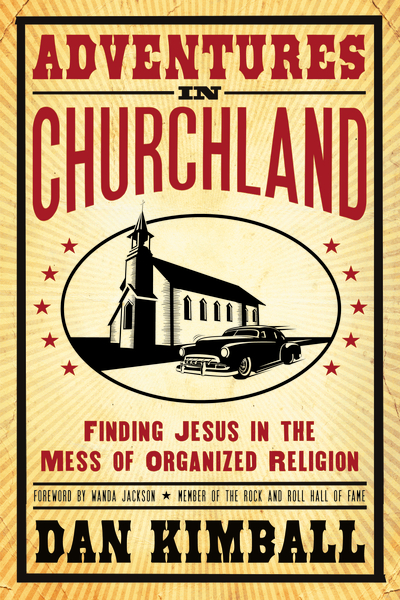 Adventures in Churchland:
Adventures in Churchland:
Finding Jesus in the Mess of Organized Religion Dan Kimball (Zondervan) $16.99 A few years ago Kimball
made a name for himself for his book and DVD curriculum They Like Jesus But Not the Church. He had been in a rockabilly band (hence the, uh, unhip haircut)
and somehow grew passionate about Jesus.
The church, not so much. In
that book, and in another on creative, contemporary worship, Kimball gave us tons of
ideas about how outsiders view our churchy activities, customs, and often off-putting
rituals. Well, he’s back, with a
cool book with graphics that look like rock concert poster silk-screen type. Same concerns, same punky hair. His description of his journey, his
fingering the mess that is the church, and his invitation to what he calls Graceland is
compelling and important. And cool. How many
books carry blurbs from rock starts like Zack Lind of Jimmy Eats World, or
rockabilly legend Wanda Jackson (who has toured with Elvis, Jerry Lee Lewis,
and, more recently Adele?) There is message here, I think—there are culturally important folks out there who frankly don’t “get” church. There are lots of their fans and followers, ordinary kids who are comfortable in all kinds of clubs and shows and venues, but the whole church thing just doesn’t make any sense to them. It just doesn’t. Especially when they notice us squabbling.
Importantly, this book admits and jokes about and suggests solutions to the
divide between the richness of the Biblical account of the life of Jesus and
the tacky and exclusive nature of most churches, independent or
denominational. Most churches want to be welcoming, I’m sure, and most want to help people love God. Kimball’s a great
storyteller and he really shines when he lovingly mocks his own conservative evangelical sub-cultural
world (like how he had to be in a cheesy musical)—sophisticated mainline folks will cringe at some of this—even as he invites us all to
realize the huge dissatisfaction with organized religion that is commonplace. And he helps us do something honest and effective about it.
Check out his www.dankimball.com
for study helps for Adventures in Churchland including discussion questions, teaching resources, and more. Fun, funny, and kinda weird. Not bad for a guy who reads comic books and loves vintage
Ford Mustangs. Not bad for any of us who want a quick glimpse of how many unchurched young adults think about us.
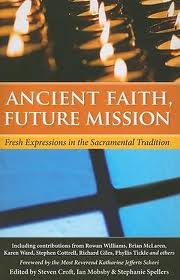 Ancient Faith, Future
Ancient Faith, Future
Mission: Fresh Expressions in the Sacramental Tradition edited by Steven Croft, Ian Mobsby
& Stephanie Spellers (Seabury Books) $22.00 Okay, you get the critique offered in the poignant stories
of Dan Kimball. You realize that
skeptics, seekers, and nearly anybody under 50, statistically speaking, has no
clue about mainline religion, liturgy, sacramental theology. Most people can’t find their way from a nave to a sanctuary and don’t know a pyx from a pixel. (I know a few of you are thinking: “Not bad, Borger. So you know what a pyx is.” Ha.) Enter the Fresh Expressions movement from England and this
brilliant book situated within the liberal, Anglican tradition, a tradition
that means business when it talks about being ancient/future.
You know that this “the way ahead goes
through the past” mantra of McLaren and Tickle and others is common these
days—brilliantly promoted decades ago by the ecumenical evangelical Robert
Webber—is sometimes co-opted by evangelicals that tinker with some candles,
maybe, or dare to read a book about the desert fathers, tacked on to an
essentially modern or postmodern congregational ethos and rather thin sense of ritual. Most Anglicans and, in the US,
Episcopalians, have tools of reaching out in very edgy, new ways, but without
sacrificing liturgical sensibilities, spiritual practices, and sacramental
worship. This book is a collection
of essays about a blending of liturgical church life and emergent movements,
“the latest iteration in an ancient and essential tradition.” There are contributions by Rowan
Williams, Karen Ward, Richard Giles, Phyllis Tickle, Ian Mosby and more.
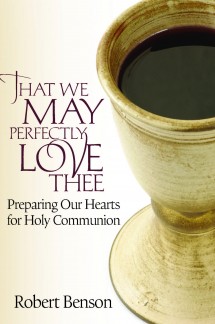 That We May Perfectly
That We May Perfectly
Love Thee: Preparing Our Hearts for Holy Communion Robert Benson (Upper Room) $14.00 Benson is not a rockabilly critic of peculiar evangelical
practices and he’s not an emergent hipster doing U2charists, either. Both of the above
books are big picture important, but, I’m sure, for most of us, we are carrying
on doing church pretty much the same as always. Even if we are extraordinarily creative, creating
para-church outreaches or fresh expressions, we, sooner or later offer
communion rituals. Whether you approach it as an austere
Lord’s Supper or a formal Eucharistic liturgy, a mournful recollection or a
celebration feast, we have to figure out what we believe and what we do, and how and why
we do it. There are good books all
about that, and we have plenty.
This one, though, is more basic, and it is elegant and wonderful. It is a book I wish every Christian person would read, a deeply
meaningful and lovely rumination offering a deeper understanding of Holy
Communion. These days, Frederick
Buechner doesn’t blurb many books (not that he ever did) but his rare imprimatur
speaks volumes. “This is an unpretentious book, simply written, truly felt…It
reminds us of things we have half forgotten. It opens our eyes to things we have only half seen.”
I love this quote about That We May Perfectly
Love Thee from
Daniel Benedict, Abbot of the Order of Saint Luke, himself author of Patterned by Grace: How Liturgy Shapes Us,
which says it more nicely than I could:
This treasury of insight is a book
small enough to read in an evening and big enough to be a short course in what
it means to worship the triune God in the church’s diverse practice. Ever the artist and teacher, Robert
Benson helps us reimagine our participation in God’s radiance.” There is, by the way, a fine little
study guide in the back, great for small groups, adult classes, or personal
reflection.
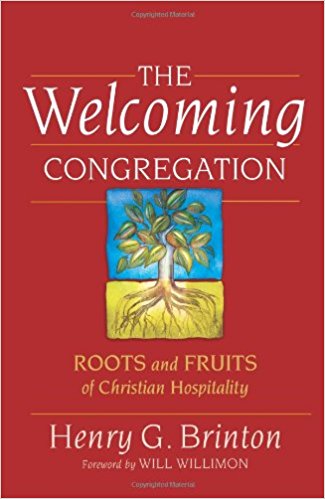 The Welcoming
The Welcoming
Congregation: Roots and Fruits of Christian Hospitality Henry G. Brinton (Westminster/John
Knox) $17.00 As I skimmed this the
other day, I knew I’d want to study it carefully, draw on it for classes I
teach at our own Presbyterian church, and offer it to thoughtful readers as a
key resource for congregational life.
Brinton is a pastor of a serious, growing
Presbyterian (USA) church outside of Washington DC and it carries endorsements by renowned mainline scholars
such as Serene Jones (President of Union Theological Seminary) and Amy G. Oden
(Dean and professor of church history at Wesley Theological Seminary, herself an author of a study called God’s Welcome.) Will Willimon has a glowing forward,
reminding us of the great gift that a reconciled people in a local church can
be to such a fractured world as ours.
Firstly, I can assure you
this book has theological substance and is rooted in mature Biblical
analysis. Neither overly pious or
overly critical, it strikes the right tone, I think, and is stimulating but not arcane, faithful
but not fastidious. He cites a
variety of sources, a strength that offers a richness and diversity that BookNotes
readers will appreciate. (Brinton,
in fact, had a large Lilly Grant and traveled widely, researching for their
National Clergy Renewal Program, which took him from the Iona community in Scotland to Saddleback in California, if you
get my drift.) Not only is this
book open-minded and diverse, it is solid, with great Biblical material, great
study notes, good pull quotes and sidebars and suggested exercises. It is ideal for congregational study, especially in mainline denominational churches.
In the “roots” section,
there are chapters on sites, meals, small groups. In the “fruits” sections
there are extraordinary hopeful signposts pointing towards what might come from
a truly hospitable congregation, reconciliation, outreach, and new perceptions. I suspect this will challenge some
congregations as it becomes clear that being welcoming and Biblically
hospitable means more than just greeting new members, but is about forming a
inclusive, caring, authentic community that is honest about our differences and
allowing the Spirit to transform our identities and loyalties, in Christ. This is Kingdom stuff, radical,
provocative, good.
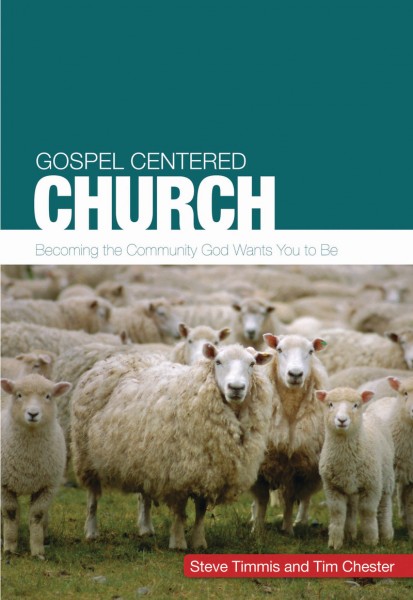 Gospel Centered Church:
Gospel Centered Church:
Becoming the Community God Wants You To Be Steve Timmis & Tim Chester (The Good Book Company)
$9.99 You may know these authors,
from the European Acts 29 church-planting network and author of the very good (and quite wholistic)
Total Church. This small resource is a very
impressive 18-session study, arranged with six sessions each around three major
themes: the Priority of Mission, the Priority of People, the Priority of
Community. The “gospel-centered” phrase should make it clear that this sees our
outreach, ministry, hospitality, formation of caring community and all we do as
rooted in the grace-filled, saving work of God in Christ. I love the way this calls us to trust
in God’s redemptive work, motivating us not by tradition or worthy causes or
our own needs or hopes, but, quite simply, in the gospel. Gospel. Centered. Not bad, eh? Nice graphic icons and symbols make this user friendly, easy
on the eye, and, in just under 100 pages, a fabulous small group resource.
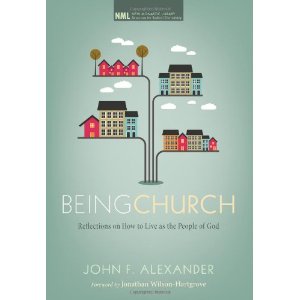 Being Church: Reflections
Being Church: Reflections
on How to Live as the People of God
John F. Alexander (Cascade) $29.00
When I saw this last month in the Wipf & Stock catalog I could
barely believe my eyes. John was a
bit of a friend in the 70s, a hero of mine, back from his days helping what were then
called “young evangelicals” start up stuff like Sojourners and The Other Side
magazine, Discipleship Workshop, ESA, and Jubilee Housing initiatives and inner city health clincs. With friends
like Rene Padilla and John Perkins and Susan Gallagher and Richard Mouw and Ron
Sider, a movement of socially engaged, community-minded, spiritually-formed
edgy evangelicals literally changed the face of religion in America. That evangelicals are now in the forefront
of social justice, fighting sexual trafficking and starting micro-financing
organizations, that the most multi-ethnic congregations in American tend to be
evangelical, that groups like the New Monastics and their call to from “community at
the edges of Empire” are published by publishers like Zondervan, that the
biggest-selling serious book in religious publishing these days is one on Bonhoeffer,
all of this can be directly traced back to author/activists like John
Alexander. He was a profound thinker, a tireless activist, a great writer. He died in 2001.
I will report more later
on another aspect of John’s story—-from white-bread Wheaton’s![]() conservative
conservative
evangelicalism to a post-evangelical, rancorous liberation theology and back to a more
rigorously orthodox doctrinal view, a painful rediscovery of roots that caused
him to leave The Other Side magazine and community, a journey he brilliantly chronicles
in one of my all-time favorite books (now reissued) called The Secular Squeeze: Finding Christian Depth in a Shallow World (Wipf & Stock.) That quick summary, though, is a hint that will help you understand the passion and the brave willingness of Alexander to seek the truth
and live it out, wherever it may lead, and anguish dripping between the lines
of Being Church, this brand new posthumously published collection of writings. Alexander earned a degree in both philosophy and psychology
from Oxford and his heady style and scholarly influences are evident, here. (Gotta say, I love the footnotes!) But more, John is writing with his bleeding heart on his sleeve, a
bleeding heart, indeed, as he longs for people to take Jesus seriously, to
reject the narrative of the American dream, to be in community in ways that
calls us all to accountability and obedience and forms us towards radical discipleship. Can a normal church do that?
This exceptional book is about philosophy and theology (think
Stanley Hauerwas, perhaps) and social ethics (Volf? Yoder? Hays?) but it is mostly about
community. John Alexander draws on the
Biblical sources, citing the New Testament often, and profoundly. He draws on the classic sources, from
Life Together to Body Life to the weighty, but stunningly important Gerhard
Lofhink and Robert Bank’s famous
book about Paul’s view of community and Jean Vanier. (I think it was John who once told a group of us to read Community and Growth, a thick classic for anyone interested in intentional community.)
I don’t want to discourage ordinary church people from getting this, but
he’s a house church guy, Anabaptist, mostly. Some of his stories are drawn from his role in intentional house-holding and community living.
Here is a good introduction to the book, a touching portrait written recently in patheos by Jonathan Wilson-Hartgrove. Especially with his new DVD and book The Awakening of Hope: Why We Practice a Common Faith (Zondervan; DVD $26.99; book $14.99)—I’ll dedicate a BookNotes review to it soon—it is increasingly clear that Wilson-Hartgrove, Shane Claiborne, and the other “New Monastics” are standing on the shoulders of John Alexander and his tribe. What an honor for Jonathan to be asked to write the foreword to Being Church. Do check out his patheos piece, and come on back here.
Still, philosopher though he was, in light of his serious critique of individualism
(Malcolm X and Thomas Jefferson are lumped together for their anti-Biblical
view of the autonomy of the self), he ends up mostly being quite practical
about what it means to not be autonomous, to serve one another.
This is a book with much to say about the relational arts that keep us together, how a
commitment to unity needs practices and wisdom for a joyful life together. I love this book, and am glad to recall having met John a time or two; I may disagree with
him on occasion, and am scared by some of it. I could underline stuff on every page, cite his clever lines
and celebrate his big vision of a local place that gathers people together to
follow in the ways of Jesus the servant King. I know I recommend a lot of books, but this one is in that company of books that are the best of the best. Just listen to these ringing endorsements. They might assure you that I’m not making this up: this slightly over-sized book is one of the most important books to come out in a very long time.
“John Alexander has been one of the unsung heroes in the modern Christian
world. His understanding of Christianity as a counter-cultural movement
is profound, and he has been able to communicate it with effectiveness
in his writings. Everything he has written has been marked by fresh
insights into what it means to be a Christian in a society in which
cultural Christianity has become the norm.”
–Tony Campolo, author of Red Letter Christians“Superb. Disturbing. Challenging. Radical because it is biblical. Being Church
is an extremely well-written, theologically profound but easily
understood presentation of a hugely important truth: almost everything
depends on recovering the revolutionary reality of genuine Christian
community. A must-read.”
–Ronald J. Sider, author of Rich Christians in an Age of Hunger“Being Church
is a comprehensive and winsome invitation to embrace a more radical and
holistic vision for the church. It is also a testament to the
remarkable story of Church of the Sojourners. John’s voice has the
weight of wisdom that comes only from deep reflection and hard-earned
experience–it is a voice that we should pay attention to.”
–Mark Scandrette, author of Practicing the Way of Jesus“It
took a sixty-year journey before John Alexander could write this book.
Eventually he learned that trying harder and doing more is not the way
God changes us. Nor is it the good news of the gospel for the world.
This book shares the alternative: the culture of grace. It was worth the
wait.”
–Chris Rice, author of Reconciling All Things
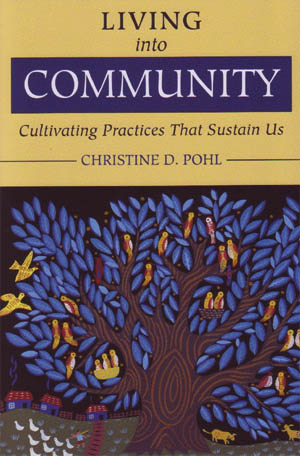 Living Into Community: Cultivating Practices That Sustain Us Christine D. Pohl (Eerdmans) $20.00 Serious readers of Christian books surely know Pohl’s classic 1999 book, Making Room: Recovering Hospitality as a Christian Tradition (Eerdmans; $20.00.) It happily put the phrase “hospitality” on the theological map.
Living Into Community: Cultivating Practices That Sustain Us Christine D. Pohl (Eerdmans) $20.00 Serious readers of Christian books surely know Pohl’s classic 1999 book, Making Room: Recovering Hospitality as a Christian Tradition (Eerdmans; $20.00.) It happily put the phrase “hospitality” on the theological map.
Years in the making, this substantial sequel is a “truly beautiful book” and one that Marva Dawn insists “every Christian should read!” When a book this thoughtful and this good get this kind of attention, you know it should be on your list. Now is a good time to ponder how our congregations can embody four core practices that sustain healthy community life. If you hunger for a church that is more intentional about relationships and an ethos of caring community, you need to know this material.
I know I have spoken of this book before, but I have this sense that in this new church season, some churches are pondering how they can foster better body life, how they can be a community. Maybe they aren’t ready for the intentional living arrangements of the “new monastics” or the radical koinonia described in John Alexander’s book. Okay. This book will get you further towards being a sustainable community, and her study and experience–from L’Abri to Asbury–is remarkable. This should be in every church library, a few around so anybody longing for great community might be able to have access to it. It is very well done, complete with discussion questions. Here is another list of books I did a few years ago on community with some very interesting titles.
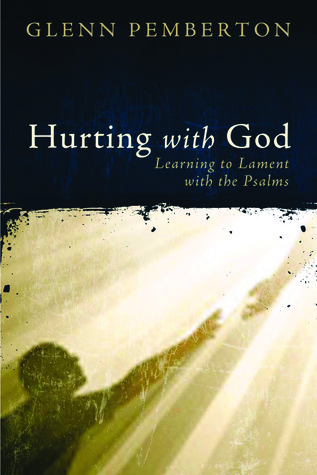 Hurting with God: Learning to Lament with the Psalms Glenn Pemberton (Abilene University Press) $19.99 I worshiped in a church this summer where a young man had just died after a long and painful struggle with cancer. It was awful, I gather. There wasn’t a word of prayer or mention of it that morning, let alone any liturgical attention to it, even though many in the congregation were grieving, having attended the funeral the day before. I was sad about this for weeks, and continue to ponder why our congregations are so often unwilling to name our pains, to be honest about our brokenness, and to avoid any liturgical affirmation of the hurt so many of us carry.
Hurting with God: Learning to Lament with the Psalms Glenn Pemberton (Abilene University Press) $19.99 I worshiped in a church this summer where a young man had just died after a long and painful struggle with cancer. It was awful, I gather. There wasn’t a word of prayer or mention of it that morning, let alone any liturgical attention to it, even though many in the congregation were grieving, having attended the funeral the day before. I was sad about this for weeks, and continue to ponder why our congregations are so often unwilling to name our pains, to be honest about our brokenness, and to avoid any liturgical affirmation of the hurt so many of us carry.
Interestingly, there have been several books released lately on using the Psalms devotionally and in worship, and a few on using the lament Psalms. This one is masterful, a good study and “a rich resource for the practice of faith” as Walter Brueggemann says of it. Pemberton (an Old Testament scholar) offers a persuasive case for restoring the biblical language of lament in the church and in the lives of believers. I like that Brueggemann also notes that it is “well informed about scholarship but brings to it the heart and humor of a pastor.” And it is honest. It will engender honest prayer. I bet you could use some of that in your congregation, too. Highly recommended.
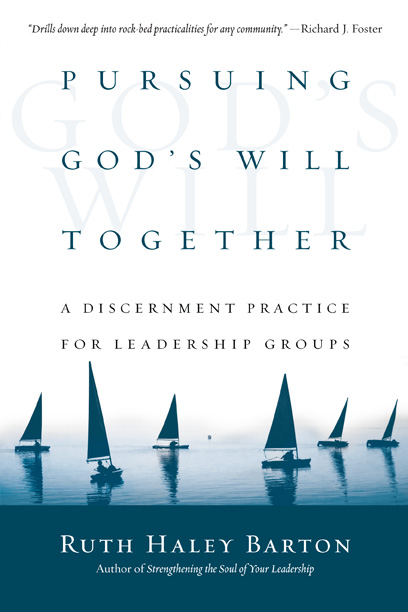 Pursuing God’s Will Together: A Discernment Practice for Leadership Groups Ruth Haley Barton (IVP) $20.00 I know I did a longer review of this when it first came out this spring and I all but begged folks to consider giving it to their elders, council, vestry or other leadership board. You can read my positive review, here, but please know that it is a helpful call to contemplative, lived spirituality, a helpful overview of spiritual formation nurtured through classic disciplines, and then–get this–a very practical guide to doing this together.
Pursuing God’s Will Together: A Discernment Practice for Leadership Groups Ruth Haley Barton (IVP) $20.00 I know I did a longer review of this when it first came out this spring and I all but begged folks to consider giving it to their elders, council, vestry or other leadership board. You can read my positive review, here, but please know that it is a helpful call to contemplative, lived spirituality, a helpful overview of spiritual formation nurtured through classic disciplines, and then–get this–a very practical guide to doing this together.
Ms Barton is not the first to invite us to language of discernment rather than vote-counting and decision-making, but no one has guided us towards congregational habits with as much gusto and good writing, practical and yet inspiring, as Ruth Barton. As Richard Foster writes, it “drills down deep into rock-bed practicalities for any community.” Amen.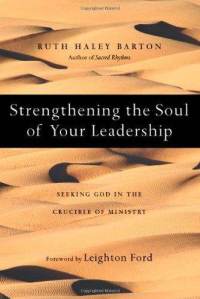
I am sure you know this in your heart: no church will get far without profound commitments to spiritual formation and no plan will be lasting and fruitful unless it is truly God’s will. It is, as the title suggests, for leaders, and offers help for leadership groups. In this regard it is a natural follow-up to her book for spiritual leaders (on avoiding burnout and such) called Strengthening the Soul of Your Leadership (IVP; $18.00.) Use these books—over time, I am confident, you will be glad you did. And so will your fellow church folks.
Watch even the first two questions she answers in this video podcast and you’ll realize she is a gem — honest, caring, helpfully aware of the stresses of life in ministry (these days, especially.) It is both sobering and I think exciting. Are you exhausted? Do you want to be well?
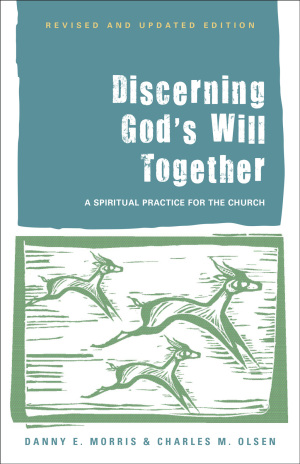 By the way, any day now we will get a brand new book on this topic published by the ecumenical folks at the Alban Institute. (We carry all their books.) It will be called Discerning God’s Will Together: A Spiritual Practice for the Church written
By the way, any day now we will get a brand new book on this topic published by the ecumenical folks at the Alban Institute. (We carry all their books.) It will be called Discerning God’s Will Together: A Spiritual Practice for the Church written
by Danny E. Morris & Charles M. Olsen (Alban Institute; $17.00) and it is a considerably re-written and expanded version of an older work of the same title. I don’t know how updated it is, but it has a great new cover and is apparently considerably different. I loved the first version, published maybe in 1999 or so. Both of these authors are experienced counselors and leaders. Morris developed the famous Upper Room Academy for Spiritual Formation and Olsen, who has 22 years experience as a Presbyterian (USA) pastor, was written widely, including Transforming Church Boards into Communities of Spiritual Leaders, an early invitation to consider these very things.
And guess who will have an endorsing blurb on the back, calling it “classic and seminal…a blessing to any group committed to seeking God’s will together”? That’s right—Ruth Haley Barton. Nice.
DISCOUNT
any book mentioned
2O% off
order here
takes you to the secure Hearts & Minds order form page
just tell us what you want
inquire here
if you have questions or need more information
just ask us what you want to know

 If you are a church leader, I’m sure you’ve been planning the fall schedule. It isn’t a new season in the liturgical calendar but it feels that way, doesn’t it? Not “ordinary time” at all. Sunday school teachers are gearing up for the new kiddos, and adult educators are writing up descriptions for their exciting classes for the church bulletin. Pastors, especially, have been thoughtful about sermons, projects, goals, meetings. I know this is true for most of us, and especially church leaders.
If you are a church leader, I’m sure you’ve been planning the fall schedule. It isn’t a new season in the liturgical calendar but it feels that way, doesn’t it? Not “ordinary time” at all. Sunday school teachers are gearing up for the new kiddos, and adult educators are writing up descriptions for their exciting classes for the church bulletin. Pastors, especially, have been thoughtful about sermons, projects, goals, meetings. I know this is true for most of us, and especially church leaders. 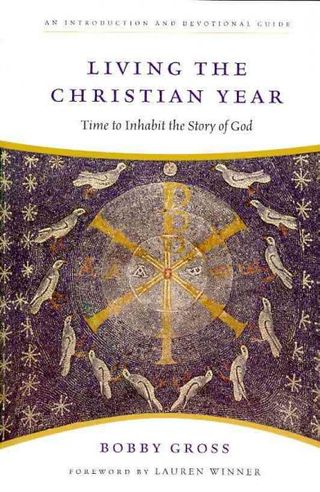 and notions of the liturgical calendar. Lauren Winner writes powerfully (in the preface of Living the Christian Year: Time to Inhabit the Story of God, Bobby Gross’s wonderful year-long devotional on the church calendar [IVP; $17.00]) how we have been too shaped by the educational year of secular schooling, feeling more rejuvenated by “back to school” motifs in September than the new year of Advent, starting in late November. You should dig out your copy and read that passage as it is well written and true. Be that as it may, the leisure of the summer months allow some of us to be a bit low-key in our congregational lives in July and August. So now, we ramp it back up. I’m sure I’m not the only one praying more and more each day about the new stuff happening after Labor Day.
and notions of the liturgical calendar. Lauren Winner writes powerfully (in the preface of Living the Christian Year: Time to Inhabit the Story of God, Bobby Gross’s wonderful year-long devotional on the church calendar [IVP; $17.00]) how we have been too shaped by the educational year of secular schooling, feeling more rejuvenated by “back to school” motifs in September than the new year of Advent, starting in late November. You should dig out your copy and read that passage as it is well written and true. Be that as it may, the leisure of the summer months allow some of us to be a bit low-key in our congregational lives in July and August. So now, we ramp it back up. I’m sure I’m not the only one praying more and more each day about the new stuff happening after Labor Day.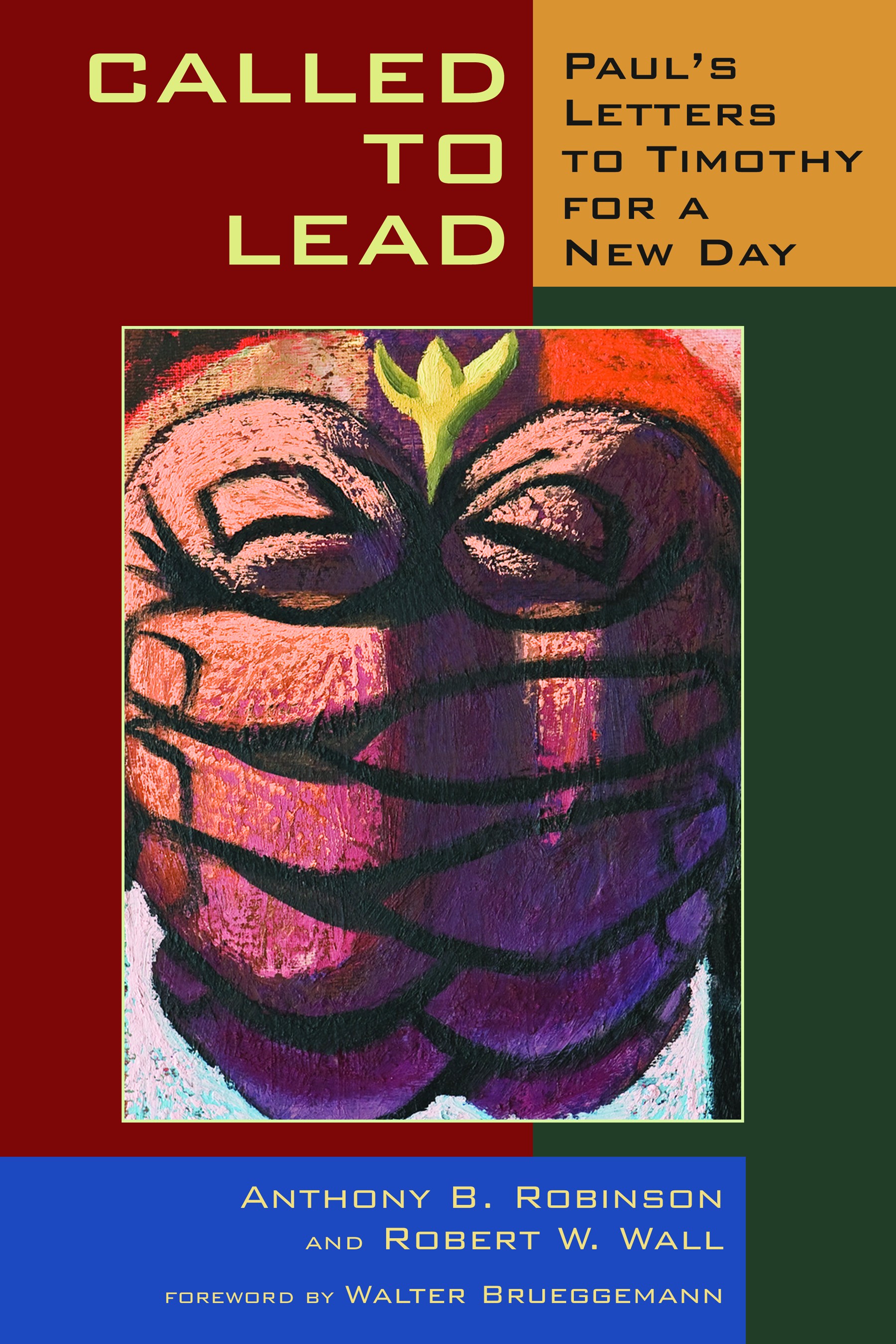 Called to Lead: Paul’s Letters to Timothy for a New Day Anthony B Robinson and Robert Wall (Eerdmans) $25.00 I really liked their earlier book Called to Be Church: The Book of Acts for a New Day which did fine exegesis and storytelling of that Biblical book with an eye to application for contemporary mainline churches. In this sequel, the pastoral leader (Tony Robinson, who writes for The Christian Century and is a church consultant with the UCC, and a very fine writer) and the evangelical Bible scholar (Wall teaches at Seattle Pacific) expound Paul’s two pastoral letters, which obviously are important for congregational life. I really liked what I read of this and hope to use it more.
Called to Lead: Paul’s Letters to Timothy for a New Day Anthony B Robinson and Robert Wall (Eerdmans) $25.00 I really liked their earlier book Called to Be Church: The Book of Acts for a New Day which did fine exegesis and storytelling of that Biblical book with an eye to application for contemporary mainline churches. In this sequel, the pastoral leader (Tony Robinson, who writes for The Christian Century and is a church consultant with the UCC, and a very fine writer) and the evangelical Bible scholar (Wall teaches at Seattle Pacific) expound Paul’s two pastoral letters, which obviously are important for congregational life. I really liked what I read of this and hope to use it more. 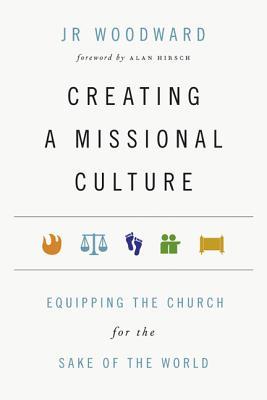 Creating A Missional Culture: Equipping the Church for the Sake of the World JR Woodward (IVP/Praxis) $16.00 This book, I’ll say at the start, would be quite a bargain at twice the price! In 250 pages, JR shares decades of serious study, information and insight gathered through hard work inchurch planting and consulting, and paying very close attention to all manner of details in the emergent, missional, fresh expressions conversations. There is a lot here, a lot you should study. Darrell Guder (Princeton Theological Seminary) writes of it
Creating A Missional Culture: Equipping the Church for the Sake of the World JR Woodward (IVP/Praxis) $16.00 This book, I’ll say at the start, would be quite a bargain at twice the price! In 250 pages, JR shares decades of serious study, information and insight gathered through hard work inchurch planting and consulting, and paying very close attention to all manner of details in the emergent, missional, fresh expressions conversations. There is a lot here, a lot you should study. Darrell Guder (Princeton Theological Seminary) writes of it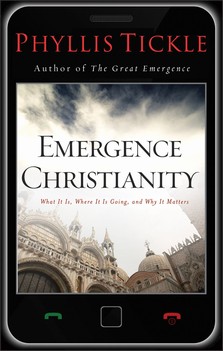 Emergence Christianity: What Is Is, Where It is Going, and Why It Matters Phyllis Tickle (Baker) $19.99 Many folks loved, and nearly everyone who read it, appreciated the simple brilliance of The Great Emergence: How Christianity Is Changing and Why (Baker, now in paperback; $14.99.) I whipped through some of this, then went back and read some more slowly, pondering and considering her big picture (and often humorous, sometimes maddening) claims. Many folks from all quarters insist that she is the person to write about this, with her encyclopedic awareness of movements, historical trends, era-shifting episodes, not to mention her vast knowledge of books and authors. She gets much of the story right, it seems to me (although sometimes it seems a bit curious, as if the wonderful Catholic Worker houses started by Dorothy Day had some influence on early emergent communities, which I highly doubt. Was Taize that important in North America?) She is an amazingly energetic social critic, and it is always fun being stimulated like this. Even if you don’t agree fully, why not go along for the ride–it is fun, interesting, and very informative.You’ll learn some things, hear about some books and authors and movements you may not know of, and see some dots connect in very clever ways. There are some great stories, even great full-color pictures. “Christianity is emerging with or without Phyllis Tickle,” says Richard Rohr, “but she is sure helping the rest of us to emerge along with it.” The wider historical context is essential to consider and she tells that story with gusto. There are various sorts of new faith expressions evolving and emerging. Highly recommended. I bet this will be one of the biggest selling books of this kind this fall. By the way, we have two different video curriculum resources of her, so let us know if you want more info.
Emergence Christianity: What Is Is, Where It is Going, and Why It Matters Phyllis Tickle (Baker) $19.99 Many folks loved, and nearly everyone who read it, appreciated the simple brilliance of The Great Emergence: How Christianity Is Changing and Why (Baker, now in paperback; $14.99.) I whipped through some of this, then went back and read some more slowly, pondering and considering her big picture (and often humorous, sometimes maddening) claims. Many folks from all quarters insist that she is the person to write about this, with her encyclopedic awareness of movements, historical trends, era-shifting episodes, not to mention her vast knowledge of books and authors. She gets much of the story right, it seems to me (although sometimes it seems a bit curious, as if the wonderful Catholic Worker houses started by Dorothy Day had some influence on early emergent communities, which I highly doubt. Was Taize that important in North America?) She is an amazingly energetic social critic, and it is always fun being stimulated like this. Even if you don’t agree fully, why not go along for the ride–it is fun, interesting, and very informative.You’ll learn some things, hear about some books and authors and movements you may not know of, and see some dots connect in very clever ways. There are some great stories, even great full-color pictures. “Christianity is emerging with or without Phyllis Tickle,” says Richard Rohr, “but she is sure helping the rest of us to emerge along with it.” The wider historical context is essential to consider and she tells that story with gusto. There are various sorts of new faith expressions evolving and emerging. Highly recommended. I bet this will be one of the biggest selling books of this kind this fall. By the way, we have two different video curriculum resources of her, so let us know if you want more info.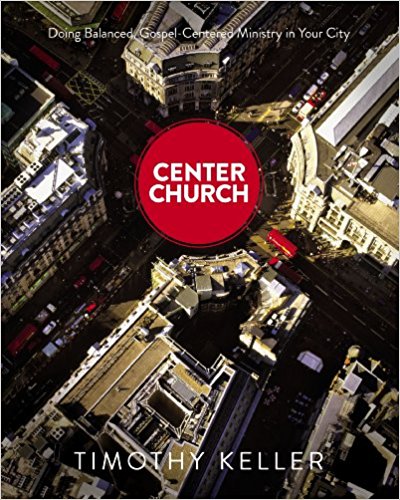 Center Church: Doing Balanced, Gospel-Centered Ministry in Your City Timothy Keller (Zondervan) $29.99 This has not released yet but we hope to have it early. Okay, it’s a text book. So there. No dust jacket, lots of sidebars, some color in the oversized pages, great summary points and good discussion questions for further learning. I think it is cool to hold, and I’ve admired it lots these last few days, even though it is hefty. And it is serious; this isn’t a simple sermon on “seeking the peace of the city” or seeking justice without reneging on core gospel truths. No, this is a wonderful set of essential chapters that lay out the basics of why we care about our places, why our churches must preach a wholistic gospel, and why our basic commitment to the authority of Scriptures demands that we do both evangelism and culture action, affirm vocations in the work-world and social social for the poor. He analyzes Niehbur and Kuyper on culture and the common good and gives lists of the best books on church growth and ministry. Yes, this covers a lot of ground, systematically and methodically. It is a masterpiece.
Center Church: Doing Balanced, Gospel-Centered Ministry in Your City Timothy Keller (Zondervan) $29.99 This has not released yet but we hope to have it early. Okay, it’s a text book. So there. No dust jacket, lots of sidebars, some color in the oversized pages, great summary points and good discussion questions for further learning. I think it is cool to hold, and I’ve admired it lots these last few days, even though it is hefty. And it is serious; this isn’t a simple sermon on “seeking the peace of the city” or seeking justice without reneging on core gospel truths. No, this is a wonderful set of essential chapters that lay out the basics of why we care about our places, why our churches must preach a wholistic gospel, and why our basic commitment to the authority of Scriptures demands that we do both evangelism and culture action, affirm vocations in the work-world and social social for the poor. He analyzes Niehbur and Kuyper on culture and the common good and gives lists of the best books on church growth and ministry. Yes, this covers a lot of ground, systematically and methodically. It is a masterpiece.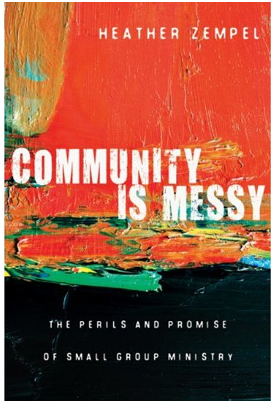 Community is Messy: The Perils and Promise of Small Group Ministry Heather Zempel (IVP/Praxis) $15.00 I am excited to share that the fabulous publisher InterVarsity Press has started this new imprint, called Praxis, which promises to offer quality resources for congregational leaders and church life. They hope to offer books of vision and expertise. “Visionary practitioners” is what they are looking for, and they insist in their blurb about the imprint that being is as important as doing “Praxis books are more than “how to” they are “why to.” “Praxis attends to the inner life of the leader as well as the outer work of ministry.” Feed your soul, feed your ministry!
Community is Messy: The Perils and Promise of Small Group Ministry Heather Zempel (IVP/Praxis) $15.00 I am excited to share that the fabulous publisher InterVarsity Press has started this new imprint, called Praxis, which promises to offer quality resources for congregational leaders and church life. They hope to offer books of vision and expertise. “Visionary practitioners” is what they are looking for, and they insist in their blurb about the imprint that being is as important as doing “Praxis books are more than “how to” they are “why to.” “Praxis attends to the inner life of the leader as well as the outer work of ministry.” Feed your soul, feed your ministry!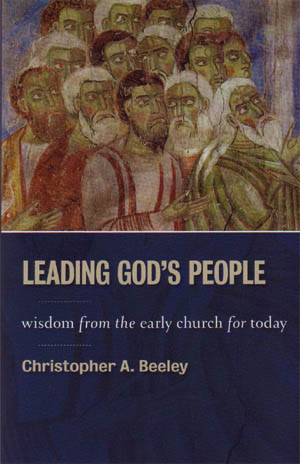 Leading God’s People: Wisdom from the Early Church for Today Christopher A. Beeley (Eerdmans) $20.00 We’ve heard the phrase “ancient-future” and there has been—in Biblical studies, in Christina social ethics, in liturgical studies—a real interest in the church fathers. Well, here you go: the wisdom of the past addressing the challenges of the present. Beeley is Professor of Anglican Studies and Patristics at Yale Divinity School. He obviously loves the great fathers of the church (East and West) and garners here raves from the Dean of St. Vladimir’s Orthodox Seminary and Rowan Williams, the Archbishop of Canterbury. Leadership should not be mostly drawn from management texts, and while some of the hip entrepreneurs are exciting, reading Gregory of Nazianzus, Ambrose, Chrysostom, and Gregory the Great, offers profound insight. Very nicely done.
Leading God’s People: Wisdom from the Early Church for Today Christopher A. Beeley (Eerdmans) $20.00 We’ve heard the phrase “ancient-future” and there has been—in Biblical studies, in Christina social ethics, in liturgical studies—a real interest in the church fathers. Well, here you go: the wisdom of the past addressing the challenges of the present. Beeley is Professor of Anglican Studies and Patristics at Yale Divinity School. He obviously loves the great fathers of the church (East and West) and garners here raves from the Dean of St. Vladimir’s Orthodox Seminary and Rowan Williams, the Archbishop of Canterbury. Leadership should not be mostly drawn from management texts, and while some of the hip entrepreneurs are exciting, reading Gregory of Nazianzus, Ambrose, Chrysostom, and Gregory the Great, offers profound insight. Very nicely done.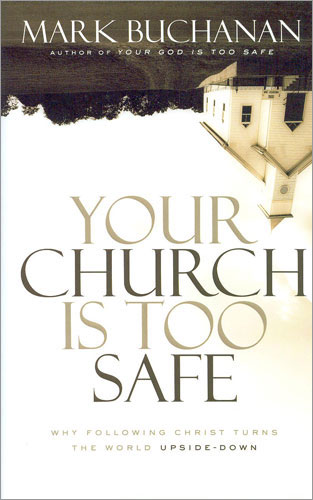 Your Church is Too Safe: Why Following Christ Turns the World Upside Down Mark Buchanan (Zondervan) $18.99 I have raved about other books by Buchanan, who is smart and astute, a fine writer and a wonderful storyteller. I think he is one of our better evangelical writers these days, more substantive than Lucado, more colorful than Yancey, a bit more energetic than Peterson, not quite as elegant as Barbara Brown Taylor. Still, he’s in that league, turning good phrases and offering solid insight. I loved his book about experiencing Jesus in the seasons of life and thought his book The Rest of God was one of the more inspiring things I’ve read on sabbath, resting and working in God. Here, he ponders that great verses in Acts 17 where it was said of the followers of Jesus that they “have turned the world upside down.” I laughed when I read Mark Gallie admitting “I don’t think I want to go to the church that Mark Buchanan writes about It would be too unnerving…But Buchanan writers with such verve and is so steeped in biblical truth, I think he’s convinced me to join that church, because in the end it’s a place where the unsettling and merciful God is found.” This book will bring you great pleasure and great stimulation, pondering his call to be that kind of a church, ordinary people, sharing a simple message of love and grace. Why is that so hard?
Your Church is Too Safe: Why Following Christ Turns the World Upside Down Mark Buchanan (Zondervan) $18.99 I have raved about other books by Buchanan, who is smart and astute, a fine writer and a wonderful storyteller. I think he is one of our better evangelical writers these days, more substantive than Lucado, more colorful than Yancey, a bit more energetic than Peterson, not quite as elegant as Barbara Brown Taylor. Still, he’s in that league, turning good phrases and offering solid insight. I loved his book about experiencing Jesus in the seasons of life and thought his book The Rest of God was one of the more inspiring things I’ve read on sabbath, resting and working in God. Here, he ponders that great verses in Acts 17 where it was said of the followers of Jesus that they “have turned the world upside down.” I laughed when I read Mark Gallie admitting “I don’t think I want to go to the church that Mark Buchanan writes about It would be too unnerving…But Buchanan writers with such verve and is so steeped in biblical truth, I think he’s convinced me to join that church, because in the end it’s a place where the unsettling and merciful God is found.” This book will bring you great pleasure and great stimulation, pondering his call to be that kind of a church, ordinary people, sharing a simple message of love and grace. Why is that so hard?  The Journey of Ministry: Insights from a Life of Practice Eddie Gibbs (IVP) $15.00 I like Eddie Gibbs and have appreciated his ChurchNext and his LeadershipNext. He is a senior professor in the School of Intercultural Studies at Fuller. Alan Hirsch calls him “one of the few elder statesmen in missional church circles.” He’s loved all over the world, I’m told. But here, he doesn’t didactly teach and admonish and dream, as much as he gently tells his story, sharing the texture of pastoring, the need to care about others in the family of God. He tells of challenges he’s faced and offers insights for sustaining effective ministry. His sage advise and his interesting style seems somewhat close to Eugene Peterson, but a bit more feisty; a bit like Hirsch and the missionals, but not quite that edgy. In a truly lovely forward, his colleague and friend Richard Mouw speaks of Eddie’s respected reputation, his youthful energy, and how much he liked the book. Mouw uses words like “delightful” and “intriguing.” It is a fine book.
The Journey of Ministry: Insights from a Life of Practice Eddie Gibbs (IVP) $15.00 I like Eddie Gibbs and have appreciated his ChurchNext and his LeadershipNext. He is a senior professor in the School of Intercultural Studies at Fuller. Alan Hirsch calls him “one of the few elder statesmen in missional church circles.” He’s loved all over the world, I’m told. But here, he doesn’t didactly teach and admonish and dream, as much as he gently tells his story, sharing the texture of pastoring, the need to care about others in the family of God. He tells of challenges he’s faced and offers insights for sustaining effective ministry. His sage advise and his interesting style seems somewhat close to Eugene Peterson, but a bit more feisty; a bit like Hirsch and the missionals, but not quite that edgy. In a truly lovely forward, his colleague and friend Richard Mouw speaks of Eddie’s respected reputation, his youthful energy, and how much he liked the book. Mouw uses words like “delightful” and “intriguing.” It is a fine book.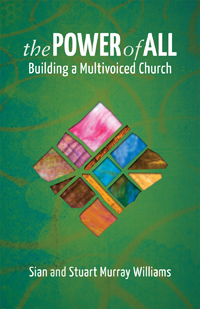 The Power of All: Building a Multivoiced Church Sian & Stuart Murray Williams (Herald Press) $15.99 You may know the most talked about Mennonite book in years, The Naked Anabaptist; Stuart Murray wrote that, inviting folks to consider the anabaptist tradition as a gift to the post-Christendom era. One needed by an Anabaptist to appreciate it, and be glad. Here, in a rare sort of book, they wonder how renewal can happen as everyone is drawn into involvement in the churches mission. They offer a New Testament model, showing how to value the voices of all, expecting the Holy Spirit to speak through all the members of the community. Nobody gets disenfranchised and everyone is encouraged to find their gift, their voice. One early reviewer said this approach to congregational life is “an antidote to the boredom many experience in church and to the growing irregularity of attendance.” It is full of stories, stories of churches in conflict and churches experiencing renewal. Fascinating.
The Power of All: Building a Multivoiced Church Sian & Stuart Murray Williams (Herald Press) $15.99 You may know the most talked about Mennonite book in years, The Naked Anabaptist; Stuart Murray wrote that, inviting folks to consider the anabaptist tradition as a gift to the post-Christendom era. One needed by an Anabaptist to appreciate it, and be glad. Here, in a rare sort of book, they wonder how renewal can happen as everyone is drawn into involvement in the churches mission. They offer a New Testament model, showing how to value the voices of all, expecting the Holy Spirit to speak through all the members of the community. Nobody gets disenfranchised and everyone is encouraged to find their gift, their voice. One early reviewer said this approach to congregational life is “an antidote to the boredom many experience in church and to the growing irregularity of attendance.” It is full of stories, stories of churches in conflict and churches experiencing renewal. Fascinating.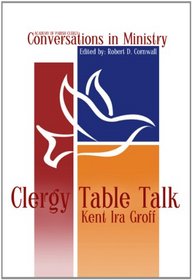 Clergy Table Talk: Eavesdropping on Ministry Issues in the 21st Century Kent Ira Groff (Energion Publications) $9.99 I don’t know if you know my gentle friend, spiritual director, poet, and writer Kent Groff, but he is so very well loved within certain mainline denominational circles—he founded Oasis Ministries (headquartered near Lancaster, a network equipping and training folks in the art of spiritual direction) and he taught adjunct at Lancaster Seminary and Princeton Theological Seminary. He has written numerous books (including a guide to spiritual exercises, Active Spirituality, published by the Alban Institute, a good one on being a writer called Writing Tides) and a recent book of devotional poems, interestingly inspired by the exercises of Saint Ignatius.)
Clergy Table Talk: Eavesdropping on Ministry Issues in the 21st Century Kent Ira Groff (Energion Publications) $9.99 I don’t know if you know my gentle friend, spiritual director, poet, and writer Kent Groff, but he is so very well loved within certain mainline denominational circles—he founded Oasis Ministries (headquartered near Lancaster, a network equipping and training folks in the art of spiritual direction) and he taught adjunct at Lancaster Seminary and Princeton Theological Seminary. He has written numerous books (including a guide to spiritual exercises, Active Spirituality, published by the Alban Institute, a good one on being a writer called Writing Tides) and a recent book of devotional poems, interestingly inspired by the exercises of Saint Ignatius.)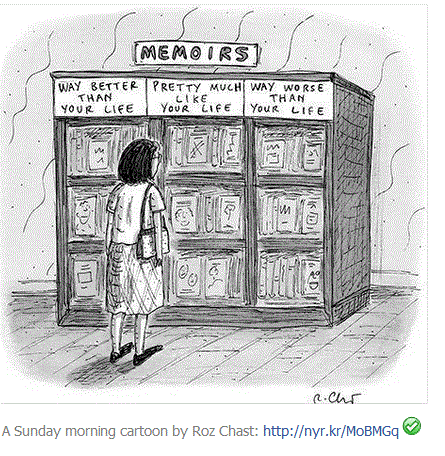 recommended many over the years—ahh, just think of Buechner and L’Engle and Merton, of course. All three by Mary Karr, of course. Think of A Severe Mercy, Angela’s Ashes, My First White Friend, and A Girl Called Zippy. And Lauren Winner. And Kathleen Norris. Yes,
recommended many over the years—ahh, just think of Buechner and L’Engle and Merton, of course. All three by Mary Karr, of course. Think of A Severe Mercy, Angela’s Ashes, My First White Friend, and A Girl Called Zippy. And Lauren Winner. And Kathleen Norris. Yes,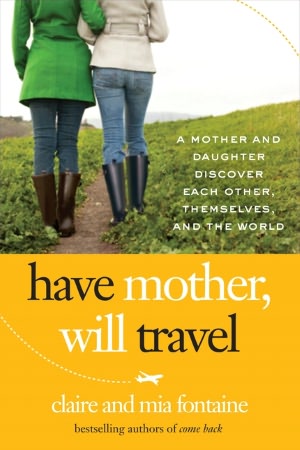 Have Mother Will Travel:
Have Mother Will Travel: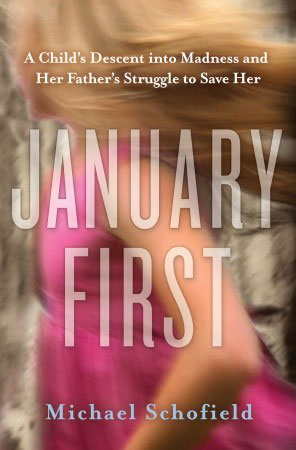 January First: A Child’s
January First: A Child’s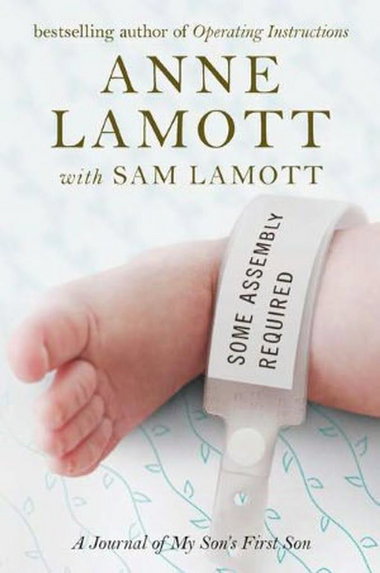 Some Assembly Required: A
Some Assembly Required: A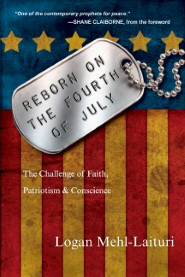 Reborn on the Fourth of
Reborn on the Fourth of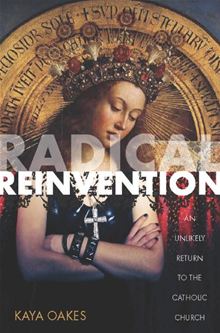 Radical Reinvention: An
Radical Reinvention: An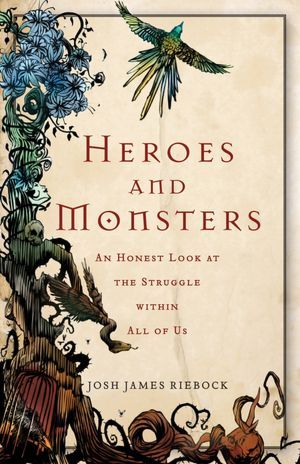 Heroes and Monsters: An
Heroes and Monsters: An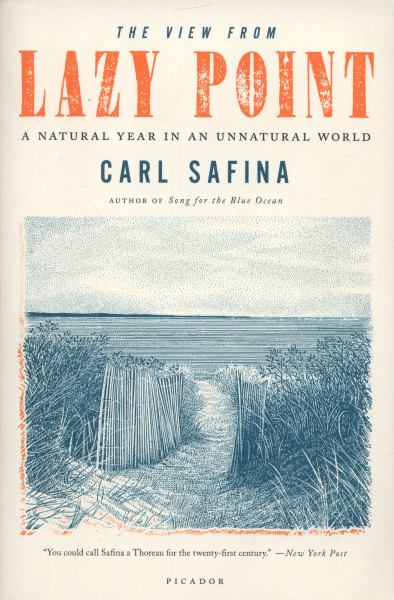 The View from Lazy Point:
The View from Lazy Point: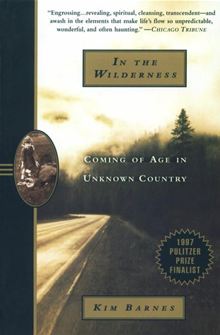 In The Wilderness: Coming
In The Wilderness: Coming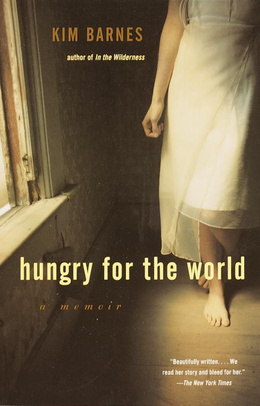 Hungry for the World: A
Hungry for the World: A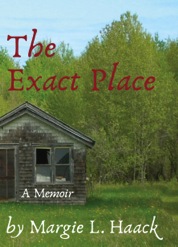 The Exact Place: A Memoir Margie Haack
The Exact Place: A Memoir Margie Haack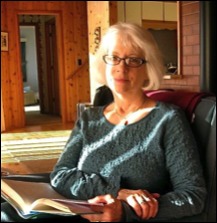 voice—and we are glad for both Margie and Denis’ good writing. Together they’ve served and
voice—and we are glad for both Margie and Denis’ good writing. Together they’ve served and Glen Beck, The Blaze. There was a startling chart showing how the number of people getting government aid—welfare in the form of
Glen Beck, The Blaze. There was a startling chart showing how the number of people getting government aid—welfare in the form of 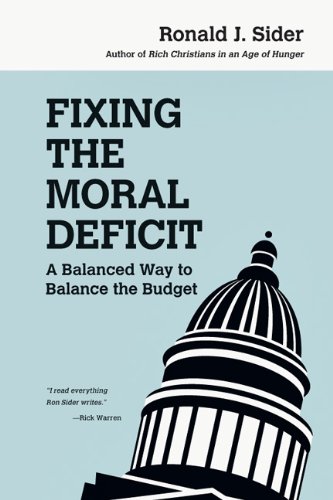 Fixing the Moral Deficit: A Balanced Way to Balance the Budget Ronald J. Sider (IVP) $15.00 I cannot tell you quickly how important this book is, but it surely is! It is fairly short but loaded with the information you need — statistics, graphs, charts, and facts. It explains the various perspectives on the budget, describes what different social service portions do, insists that the debt crisis is real and a sin against future generations who will be encumbered (perhaps unbearably) with our unpaid bills. Yet, as Sider insists, we dare not balance the budget on the backs of the poor. There has to be a better way. A few sections of this are down right inspiring as Sider dreams big, asks us to re-commit ourselves to making a difference, and shows how people of faith can help shape the agenda in a way that transcends the typical values of the fiscal conservatives and the social liberals. He makes a convincing case that the current proposals simply aren’t good enough. In a way, with God’s help, we can, and must, come up with a more imaginative alternative. He documents how in this wonderful book.
Fixing the Moral Deficit: A Balanced Way to Balance the Budget Ronald J. Sider (IVP) $15.00 I cannot tell you quickly how important this book is, but it surely is! It is fairly short but loaded with the information you need — statistics, graphs, charts, and facts. It explains the various perspectives on the budget, describes what different social service portions do, insists that the debt crisis is real and a sin against future generations who will be encumbered (perhaps unbearably) with our unpaid bills. Yet, as Sider insists, we dare not balance the budget on the backs of the poor. There has to be a better way. A few sections of this are down right inspiring as Sider dreams big, asks us to re-commit ourselves to making a difference, and shows how people of faith can help shape the agenda in a way that transcends the typical values of the fiscal conservatives and the social liberals. He makes a convincing case that the current proposals simply aren’t good enough. In a way, with God’s help, we can, and must, come up with a more imaginative alternative. He documents how in this wonderful book.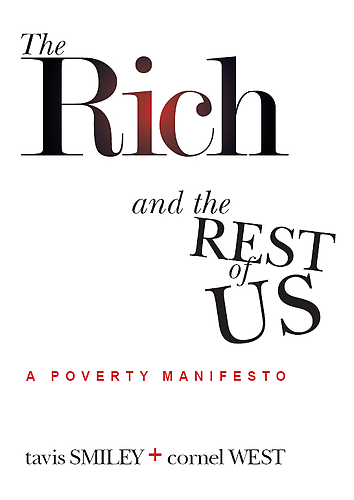 The Rich and the Rest of Us: A Poverty Manifesto Tavis Smiley & Cornel West (Smiley Books) $12.00 I like brother Tavis and brother West. One is usually calm and articulate and the other passionate and poetically eloquent. I don’t hear Cornel West’s voice in here quite enough, but it is a very important discussion of the latest facts about the “new poor” and the plight of so many of our fellow citizens. It has tons of stories, drawn from their information gathering tour across the country last year, and it has tons of data, facts, statistics and historical explanations. I’d highly recommend it even if it on occasion grows a bit wearisome with the lefty rhetoric. They have heard the stories of so many people–and they are not happy, as you may have heard—about Mr. Obama’s less than stellar leadership on this issue (does he ever actually use the word poverty, they ask?) You may find this stepping on your toes, but the topic is so important it is important to read the latest reports. This will bring you up to speed on the plight and the problems—and a whole lot of answers.
The Rich and the Rest of Us: A Poverty Manifesto Tavis Smiley & Cornel West (Smiley Books) $12.00 I like brother Tavis and brother West. One is usually calm and articulate and the other passionate and poetically eloquent. I don’t hear Cornel West’s voice in here quite enough, but it is a very important discussion of the latest facts about the “new poor” and the plight of so many of our fellow citizens. It has tons of stories, drawn from their information gathering tour across the country last year, and it has tons of data, facts, statistics and historical explanations. I’d highly recommend it even if it on occasion grows a bit wearisome with the lefty rhetoric. They have heard the stories of so many people–and they are not happy, as you may have heard—about Mr. Obama’s less than stellar leadership on this issue (does he ever actually use the word poverty, they ask?) You may find this stepping on your toes, but the topic is so important it is important to read the latest reports. This will bring you up to speed on the plight and the problems—and a whole lot of answers.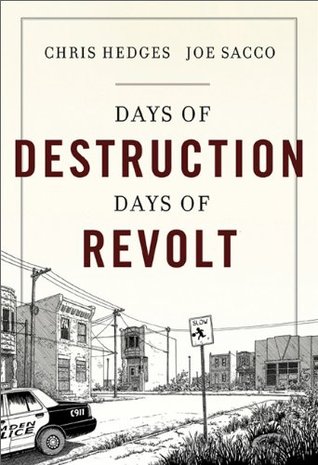 Days of Destruction Days of Revolt Chris Hedges & Joe Sacco (The Nation Books) $28.00 This is a slightly oversized hardback complete with pen and ink illustrations, making it a very handsome and sturdy book. There is a bit of a back-story to this oral history survey (which reminds me a bit of Studs Turkel, perhaps, or Howard Zinn.) These two award-winning reporters (Hedges won the Pulitzer, and Sacco has been awarded for cartoons) became friends during their high-octane work under fire amidst the horrors of the war in Kosovo and they have been comrades in truth-telling ever since. They concluded they wanted to give reportorial coverage (and for them, this means gripping prose, profound stories, excellent expose) to some of the most poverty-stricken places in America.
Days of Destruction Days of Revolt Chris Hedges & Joe Sacco (The Nation Books) $28.00 This is a slightly oversized hardback complete with pen and ink illustrations, making it a very handsome and sturdy book. There is a bit of a back-story to this oral history survey (which reminds me a bit of Studs Turkel, perhaps, or Howard Zinn.) These two award-winning reporters (Hedges won the Pulitzer, and Sacco has been awarded for cartoons) became friends during their high-octane work under fire amidst the horrors of the war in Kosovo and they have been comrades in truth-telling ever since. They concluded they wanted to give reportorial coverage (and for them, this means gripping prose, profound stories, excellent expose) to some of the most poverty-stricken places in America. 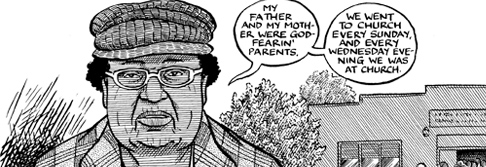 become personal, and yet examples writ large, as these are our brothers and sisters and our fellow Americans. They added a fifth chapter, from which the second phrase of the title comes, where they interview Occupy protesters, other fellow citizens who give voice to (in their view) a revolt that is perhaps our only hope. Startling, blunt prose with so many illustrations it seems nearly like a graphic novel, this is a hard and bitter book. It makes no bones about what they believe is a virus of corporate abuse, causing huge profits at the expense of indigenous peoples. You don’t have to agree with all they preach, but the stories are essential if we want to know what, and who, is involved in our policy decisions. The frontispiece is from Hosea 8:7.
become personal, and yet examples writ large, as these are our brothers and sisters and our fellow Americans. They added a fifth chapter, from which the second phrase of the title comes, where they interview Occupy protesters, other fellow citizens who give voice to (in their view) a revolt that is perhaps our only hope. Startling, blunt prose with so many illustrations it seems nearly like a graphic novel, this is a hard and bitter book. It makes no bones about what they believe is a virus of corporate abuse, causing huge profits at the expense of indigenous peoples. You don’t have to agree with all they preach, but the stories are essential if we want to know what, and who, is involved in our policy decisions. The frontispiece is from Hosea 8:7.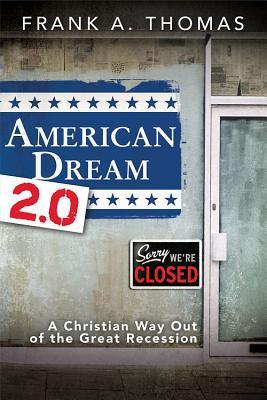 American Dream 2.0: A Christian Way Out of the Great Recession Frank Thomas (Abingdon) $15.99 This new book was just released by Abingdon, the publishing house of the United Methodists. Since Wesley was involved in preaching and social reform—his last letter, the day before he died, was to William Wilberforce—it makes sense whenever they apply their profound and historic social principles to contemporary current affairs. Rev. Frank Thomas is an upbeat Disciples of Christ pastor from Memphis who hosts a weekly talk radio ministry that speaks of the well-being of body, mind, and soul so he’s not a policy wonk and he isn’t a politico. Yet, as a preacher, he realizes we need “a new American dream” and he invites us to reflect on this vexing question for our country—why do we define social health so much in terms of economics? His call is for us to reject certain views of the American dream of material progress and align our vision more with Jesus’ teaching of the Kingdom of God, understood in light of Martin Luther King Jr.’s vision of the “Beloved Community.” We must reframe our social ethics and vision in ways that are sustainable and helpful. That he asks this very fundamental religious question—what worldview or values or social vision with guide us—I think this is a useful book. It may rattle some church groups, but we commend it for book clubs or small groups who like to discuss tough stuff in a safe setting. It isn’t as detailed about policy as the Sider one, say, and it isn’t as singularly about poverty as the other two which, important as they are, might rightly be seen as partisan.
American Dream 2.0: A Christian Way Out of the Great Recession Frank Thomas (Abingdon) $15.99 This new book was just released by Abingdon, the publishing house of the United Methodists. Since Wesley was involved in preaching and social reform—his last letter, the day before he died, was to William Wilberforce—it makes sense whenever they apply their profound and historic social principles to contemporary current affairs. Rev. Frank Thomas is an upbeat Disciples of Christ pastor from Memphis who hosts a weekly talk radio ministry that speaks of the well-being of body, mind, and soul so he’s not a policy wonk and he isn’t a politico. Yet, as a preacher, he realizes we need “a new American dream” and he invites us to reflect on this vexing question for our country—why do we define social health so much in terms of economics? His call is for us to reject certain views of the American dream of material progress and align our vision more with Jesus’ teaching of the Kingdom of God, understood in light of Martin Luther King Jr.’s vision of the “Beloved Community.” We must reframe our social ethics and vision in ways that are sustainable and helpful. That he asks this very fundamental religious question—what worldview or values or social vision with guide us—I think this is a useful book. It may rattle some church groups, but we commend it for book clubs or small groups who like to discuss tough stuff in a safe setting. It isn’t as detailed about policy as the Sider one, say, and it isn’t as singularly about poverty as the other two which, important as they are, might rightly be seen as partisan.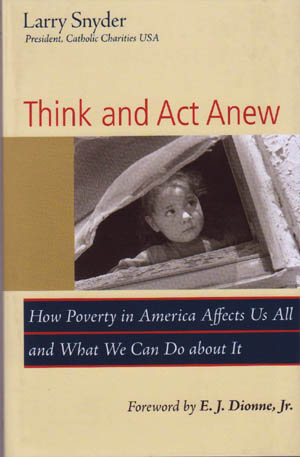 Think and Act Anew: How Poverty in America Affects Us All and What We Can Do About It Larry Snyder (Orbis Press) $16.00 This slim book came out just a year or so ago and is exceptionally relevant today. Snyder is the President of Catholic Charities USA, one of the most significant charitable organizations in America. He is a member of the President’s Council of Faith-based and Neighborhood Partnerships and has been recognized within the philanthropy community as a respected and influential leader.
Think and Act Anew: How Poverty in America Affects Us All and What We Can Do About It Larry Snyder (Orbis Press) $16.00 This slim book came out just a year or so ago and is exceptionally relevant today. Snyder is the President of Catholic Charities USA, one of the most significant charitable organizations in America. He is a member of the President’s Council of Faith-based and Neighborhood Partnerships and has been recognized within the philanthropy community as a respected and influential leader.
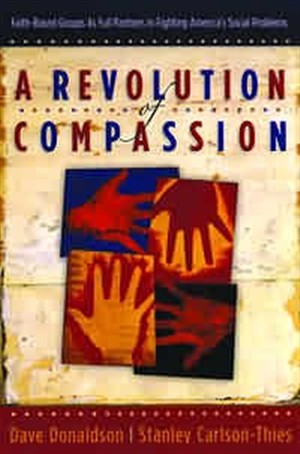 has worked in the White House years ago in the office of faith-based initiatives. It is called A Revolution of Compassion (published by Baker) and is a great collection of stories of faith-based organizations who are doing admirable work for the common good in full partnership with the government. There is some quite reasonable policy discussion here—this third way between those that say the government must do everything to serve the poor and those that say the private sector must do everything—but mostly it is inspiring stories of social services ministries and the good work they are doing, tackling our most intractable social ills. There is great stuff here and we will send a free one to you with any order. While supplies last.
has worked in the White House years ago in the office of faith-based initiatives. It is called A Revolution of Compassion (published by Baker) and is a great collection of stories of faith-based organizations who are doing admirable work for the common good in full partnership with the government. There is some quite reasonable policy discussion here—this third way between those that say the government must do everything to serve the poor and those that say the private sector must do everything—but mostly it is inspiring stories of social services ministries and the good work they are doing, tackling our most intractable social ills. There is great stuff here and we will send a free one to you with any order. While supplies last.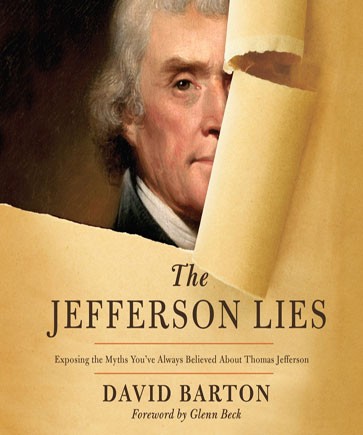 Barton, just re-called by evangelical publisher Thomas Nelson. Barton is a hero among many on the Christian right, thinking he offers a corrective, perhaps, to some of the secularizing and politically-correct sanitizing done by historians and educators of a previous generation. As a recent NPR story showed, his books about how America really was founded as a Christian country, claiming that most of the founders really were Bible-believing Christians, are popular among folks like Newt Gingerich, Michele Bachman, even among genial guys like Mike Huckabee. He often appears with talk show host Glen Beck. As you might guess, he is very involved in Republican politics. Beck wrote a glowing forward to this new book, a book which minimizes Jefferson’s racism and slave-holding, and suggests that Mr. Jefferson was an orthodox Christian believer. This, despite his famous snip, snip, snip to the Biblical texts that teach Jesus’ divinity, popularly known as The Jefferson Bible (which, yes, you can still buy today, although we don’t recommend it.)
Barton, just re-called by evangelical publisher Thomas Nelson. Barton is a hero among many on the Christian right, thinking he offers a corrective, perhaps, to some of the secularizing and politically-correct sanitizing done by historians and educators of a previous generation. As a recent NPR story showed, his books about how America really was founded as a Christian country, claiming that most of the founders really were Bible-believing Christians, are popular among folks like Newt Gingerich, Michele Bachman, even among genial guys like Mike Huckabee. He often appears with talk show host Glen Beck. As you might guess, he is very involved in Republican politics. Beck wrote a glowing forward to this new book, a book which minimizes Jefferson’s racism and slave-holding, and suggests that Mr. Jefferson was an orthodox Christian believer. This, despite his famous snip, snip, snip to the Biblical texts that teach Jesus’ divinity, popularly known as The Jefferson Bible (which, yes, you can still buy today, although we don’t recommend it.)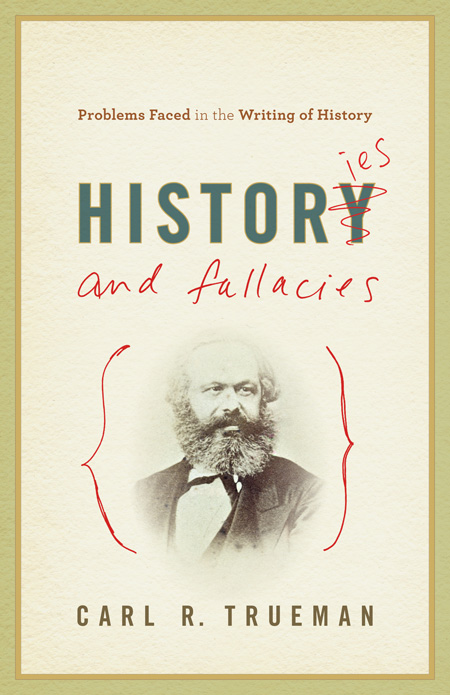 combination of historiography and apologetics. Feisty Westminster Theological Seminary professor Carl Trueman did a good collection of chapters about ideology and the myth of objectivity in history called Histories and Fallacies: Problems Faced in the Writing of History (Crossway; $17.99.) You may recall the semi-scholarly “Through the Eyes of Faith” series I talked about a few posts ago. Yep, there’s one in that series, History Through the Eyes of Faith (HarperOne; $19.99) by Ron Wells.
combination of historiography and apologetics. Feisty Westminster Theological Seminary professor Carl Trueman did a good collection of chapters about ideology and the myth of objectivity in history called Histories and Fallacies: Problems Faced in the Writing of History (Crossway; $17.99.) You may recall the semi-scholarly “Through the Eyes of Faith” series I talked about a few posts ago. Yep, there’s one in that series, History Through the Eyes of Faith (HarperOne; $19.99) by Ron Wells. 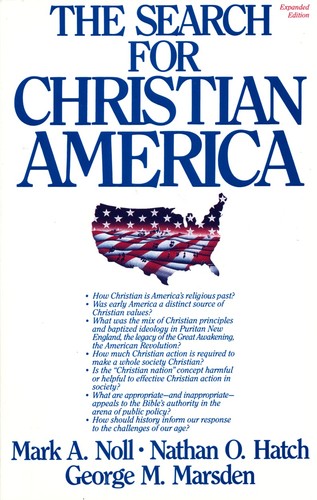 America, by the way, an older alternative to Peter Marshall and David Barton and their ilk, has long been the must-read The Search for Christian America by Mark Noll, Nathan Hatch and George Marsden (Helmers & Howard; $17.95.) We have stocked that for years, but it sadly doesn’t get the attention that the dubious work of Mr. Barton does.
America, by the way, an older alternative to Peter Marshall and David Barton and their ilk, has long been the must-read The Search for Christian America by Mark Noll, Nathan Hatch and George Marsden (Helmers & Howard; $17.95.) We have stocked that for years, but it sadly doesn’t get the attention that the dubious work of Mr. Barton does. 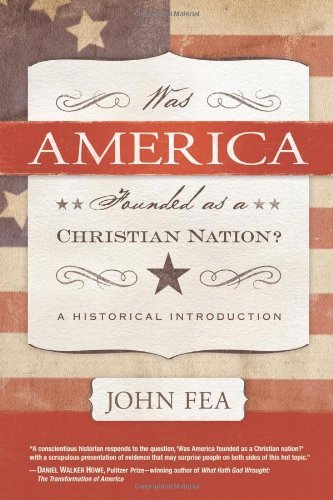 Was America Founded as a Christian Nation: A Historical Introduction John Fea (Westminster/John Knox) $30.00 What a thrill it was to have Dr. John’s input in the NPR story about Barton and his book, and how glad we are that he is fairly near us here in South-Central PA, a professor of history at Messiah College. We have commended this outstanding work before, but it is fun to remind you that John was nominated for the prestigious George Washington Prize, an award given each year for the best book about the founders. He was one of three finalists, so he put on a tux, went to Mt. Vernon, hobnobbed with a Supreme
Was America Founded as a Christian Nation: A Historical Introduction John Fea (Westminster/John Knox) $30.00 What a thrill it was to have Dr. John’s input in the NPR story about Barton and his book, and how glad we are that he is fairly near us here in South-Central PA, a professor of history at Messiah College. We have commended this outstanding work before, but it is fun to remind you that John was nominated for the prestigious George Washington Prize, an award given each year for the best book about the founders. He was one of three finalists, so he put on a tux, went to Mt. Vernon, hobnobbed with a Supreme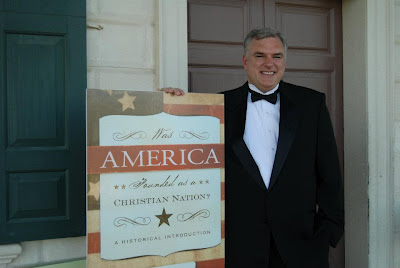 Court judge who was on the prominent panel and munched on hors d’oeuvres awaiting the news.
Court judge who was on the prominent panel and munched on hors d’oeuvres awaiting the news.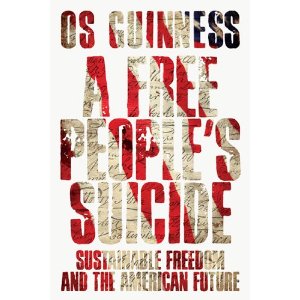 A Free People’s Suicide: Sustainable Freedom and the American Future Os Guinness (InterVarsity Press) $16.00 I have
A Free People’s Suicide: Sustainable Freedom and the American Future Os Guinness (InterVarsity Press) $16.00 I have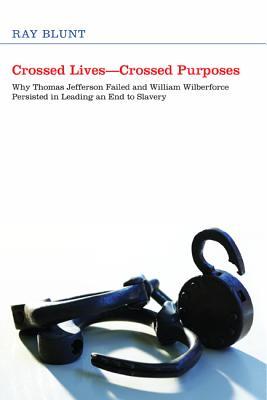 Wilberforce Persisted in Leading an End to Slavery Ray Blunt (Resource Publications) $37.99 our sale price $10.00 off $27.99 I have reviewed this briefly before, for other publications, and told about it here at BookNotes. Although I have read a few other books on both both Wilberforce and Thomas Jefferson, by reading this I learned much that was new, and was delighted by Ray’s good style. Here is how I put it for Capitol Commentary:
Wilberforce Persisted in Leading an End to Slavery Ray Blunt (Resource Publications) $37.99 our sale price $10.00 off $27.99 I have reviewed this briefly before, for other publications, and told about it here at BookNotes. Although I have read a few other books on both both Wilberforce and Thomas Jefferson, by reading this I learned much that was new, and was delighted by Ray’s good style. Here is how I put it for Capitol Commentary: 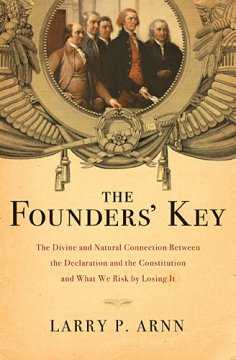 The Founder’s Key: The Divine and Natural Connection Between the Declaration and the Constitution and What We Risk by Losing It Larry P. Arnn (Thomas Nelson) $19.99 My older brother just finished a remarkable (free) on-line course with Dr. Arnn, and found it to be really informative and quite inspiring. Arnn, as you may know, is the outspoken President of the astute and conservative Hillsdale College. (Following the old colonial ways, as college President, he teaches a capstone course each year to undergrads!) He’s a very smart guy, passionate, opinionated, scholarly, and, happily, an engaging communicator. (For those who follow these things, he studied under and draws upon the prominent scholar Harry Jaffa at Claremont.)
The Founder’s Key: The Divine and Natural Connection Between the Declaration and the Constitution and What We Risk by Losing It Larry P. Arnn (Thomas Nelson) $19.99 My older brother just finished a remarkable (free) on-line course with Dr. Arnn, and found it to be really informative and quite inspiring. Arnn, as you may know, is the outspoken President of the astute and conservative Hillsdale College. (Following the old colonial ways, as college President, he teaches a capstone course each year to undergrads!) He’s a very smart guy, passionate, opinionated, scholarly, and, happily, an engaging communicator. (For those who follow these things, he studied under and draws upon the prominent scholar Harry Jaffa at Claremont.)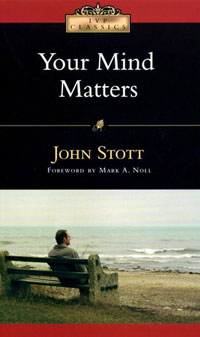 Okay, I wrote a piece or two about developing the Christian mind and showing that we stock books more than theology, church life, or spirituality. And that we stock a diverse array of things because we trust that you, our friends and customers, don’t mind using the old noggin’.
Okay, I wrote a piece or two about developing the Christian mind and showing that we stock books more than theology, church life, or spirituality. And that we stock a diverse array of things because we trust that you, our friends and customers, don’t mind using the old noggin’.  mean. It is mostly something many of us intuit —
mean. It is mostly something many of us intuit —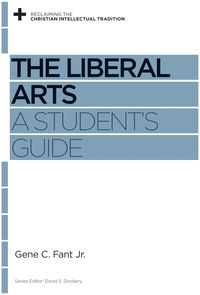
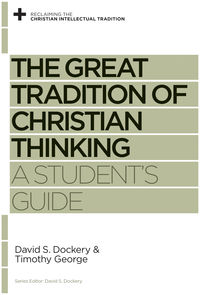
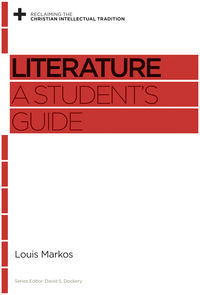
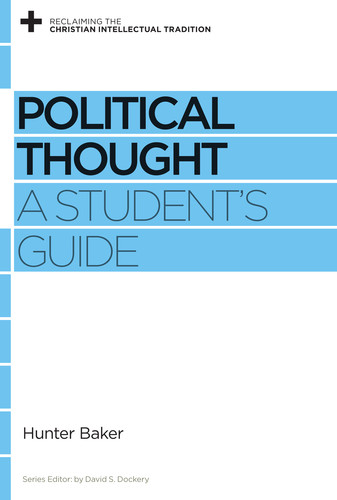
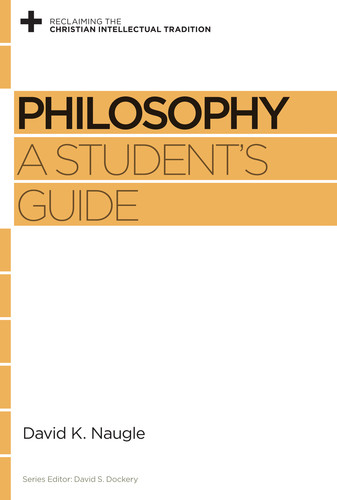 you that it will make an excellent little gift for any student you know. It is written by one of my favorite people in the world, Professor David Naugle, of Dallas Baptist University, who is Godly and creative, ecumenically minded, very widely read, a delightful writer, and, I think, a bit of a prophet as he calls all people, but especially thinkers and scholars, student and teachers alike, to work intentionally and consistently out of a coherent, Biblical worldview. I agree with his insistence that we, in our mind’s work as well, honor God by being resistance to ideas and ideologies that are in any way counter to the truths we know in Scripture and in Christ. That is, his Christian worldview makes him what some call “reformational” and his nod to the likes of Kuyper and Dooyeweerd, even, are notable. His passion for understanding the history of philosophy and his desire to do that in light of a Christian perspective, to use his “Christian lense” to appreciate and critique each major current in this all important field, is a true gift. We are taking pre-orders now, and will sent it out as soon as it arrive, in about a month from now.
you that it will make an excellent little gift for any student you know. It is written by one of my favorite people in the world, Professor David Naugle, of Dallas Baptist University, who is Godly and creative, ecumenically minded, very widely read, a delightful writer, and, I think, a bit of a prophet as he calls all people, but especially thinkers and scholars, student and teachers alike, to work intentionally and consistently out of a coherent, Biblical worldview. I agree with his insistence that we, in our mind’s work as well, honor God by being resistance to ideas and ideologies that are in any way counter to the truths we know in Scripture and in Christ. That is, his Christian worldview makes him what some call “reformational” and his nod to the likes of Kuyper and Dooyeweerd, even, are notable. His passion for understanding the history of philosophy and his desire to do that in light of a Christian perspective, to use his “Christian lense” to appreciate and critique each major current in this all important field, is a true gift. We are taking pre-orders now, and will sent it out as soon as it arrive, in about a month from now. 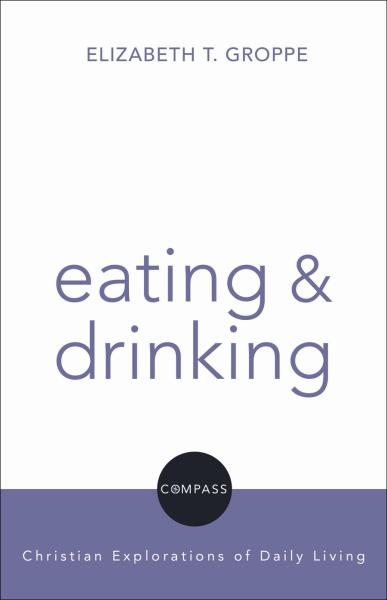
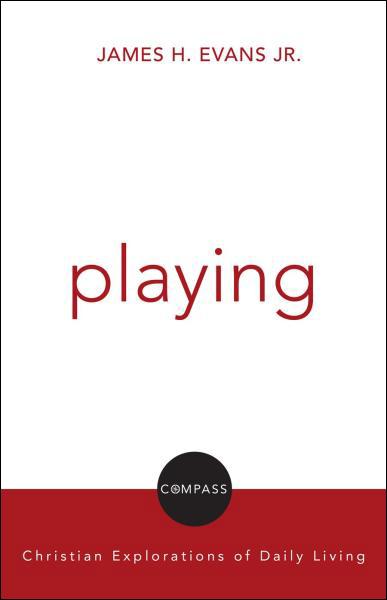
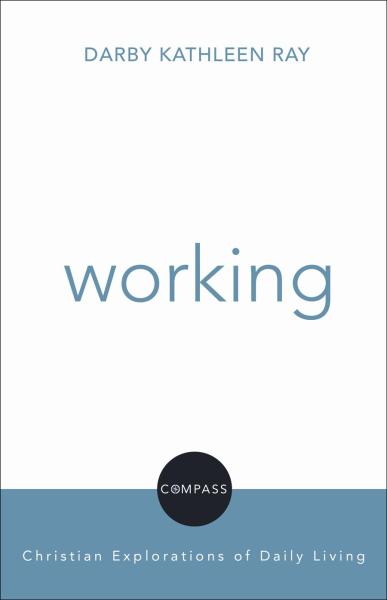

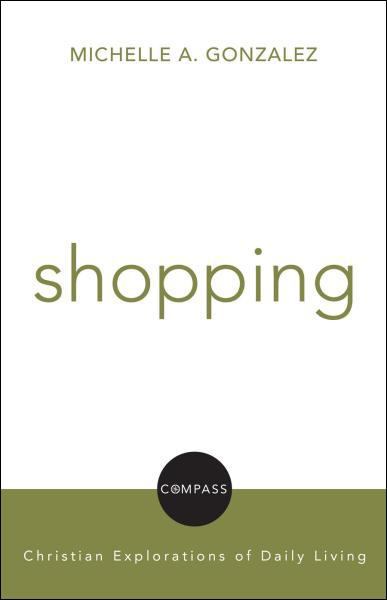
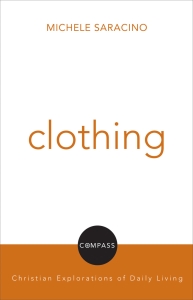
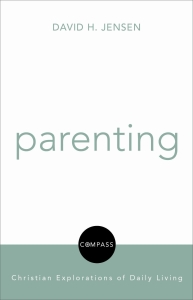
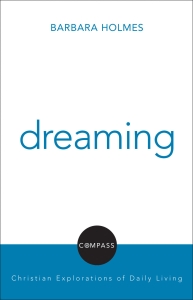
 does some work defending religious liberty that I appreciate. When he started going on in the most cocky, cliched, way against “Obamacare” I suggested that good people can disagree about the just-ness of this particular health-care reform package and as one whose family has considerable pre-existing medical conditions that have made health insurance untenable, we have considerable interest in the nuances of this conversation. He redoubled his simplistic sloganeering, drew out the heavy ideological guns—don’t I care about my freedom?—and made it hard for me to disentangle myself politely from what was obviously a doomed, non-conversation.
does some work defending religious liberty that I appreciate. When he started going on in the most cocky, cliched, way against “Obamacare” I suggested that good people can disagree about the just-ness of this particular health-care reform package and as one whose family has considerable pre-existing medical conditions that have made health insurance untenable, we have considerable interest in the nuances of this conversation. He redoubled his simplistic sloganeering, drew out the heavy ideological guns—don’t I care about my freedom?—and made it hard for me to disentangle myself politely from what was obviously a doomed, non-conversation. 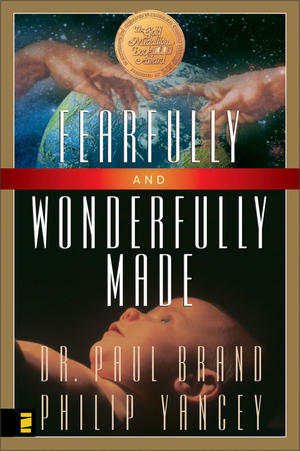 Dr. Paul Brand (Zondervan) $14.99 each All three of these handsome paperbacks share wonderful ruminations on the human body by thoughtful writer Philip Yancey and the late, great surgeon, Paul Brand. One chapter might ruminate on skin, another on the eyeball, another on blood. The first two include illustrations, even, and are a great way in to a Godly view of the intricacies of our bodies and their glory—how very interesting! The third is a bit deeper, exploring how and why pain works, and a must for anyone with serious pain and for any health care provider. Each are truly lovely, inspiring and quite nice.
Dr. Paul Brand (Zondervan) $14.99 each All three of these handsome paperbacks share wonderful ruminations on the human body by thoughtful writer Philip Yancey and the late, great surgeon, Paul Brand. One chapter might ruminate on skin, another on the eyeball, another on blood. The first two include illustrations, even, and are a great way in to a Godly view of the intricacies of our bodies and their glory—how very interesting! The third is a bit deeper, exploring how and why pain works, and a must for anyone with serious pain and for any health care provider. Each are truly lovely, inspiring and quite nice.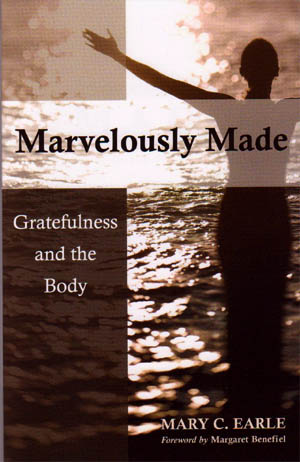 Earle is an Episcopal priest and a lovely, evocative writer, offering here a profound meditation in a brief, reflective book. Margaret Guenther says it is “to be read slowly and savored.” If we take incarnation seriously, and see our bodies as “sacred space” it might help us learn not only to be grateful for God’s good creation, it may deepen the profundity of our prayer life. Very thoughtfully done.
Earle is an Episcopal priest and a lovely, evocative writer, offering here a profound meditation in a brief, reflective book. Margaret Guenther says it is “to be read slowly and savored.” If we take incarnation seriously, and see our bodies as “sacred space” it might help us learn not only to be grateful for God’s good creation, it may deepen the profundity of our prayer life. Very thoughtfully done.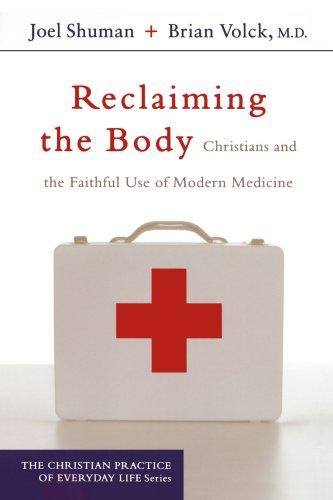
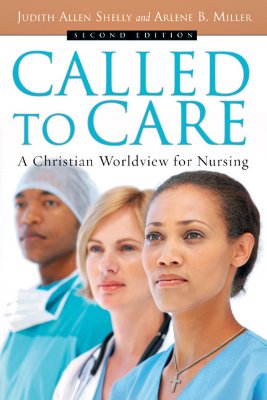 (IVP) $25.00 No matter what health care field one is in, we think this is excellent; a veritable “must-read resource.” It is maybe the best starter book for anyone wanting to read about developing a Christian frame for thinking about health care careers. Since most of us interact with nurses, physician’s assistants, chiropractors, surgeons, family docs, dentists and all sorts of health care providers, maybe you should read this, to share with them ideas about the integration of faith and the healers calling.
(IVP) $25.00 No matter what health care field one is in, we think this is excellent; a veritable “must-read resource.” It is maybe the best starter book for anyone wanting to read about developing a Christian frame for thinking about health care careers. Since most of us interact with nurses, physician’s assistants, chiropractors, surgeons, family docs, dentists and all sorts of health care providers, maybe you should read this, to share with them ideas about the integration of faith and the healers calling. 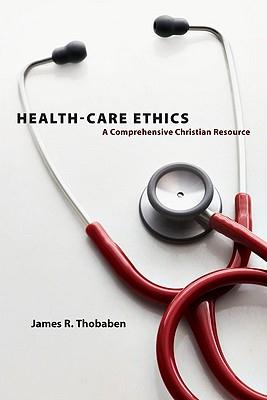 Academic) $35.00 I know the price is a bit salty and it isn’t for everyone, but I can hardly imagine a church in America who doesn’t have some health care provider or someone passionate about the study of ethics or a student of public policy, making this a perfect resource to have in a church lending library. Or, certainly, in the local hospital library. (Why not donate it to your local hospital for their library for their medial staff?) This thoughtful work is over 400 pages, written by an evangelically-minded professor of church in society from Asbury Theological Seminary. He also has an MDiv from Yale Divinity School and a M.P.H. from Yale Medical School (and a PhD from Emory for good measure.)
Academic) $35.00 I know the price is a bit salty and it isn’t for everyone, but I can hardly imagine a church in America who doesn’t have some health care provider or someone passionate about the study of ethics or a student of public policy, making this a perfect resource to have in a church lending library. Or, certainly, in the local hospital library. (Why not donate it to your local hospital for their library for their medial staff?) This thoughtful work is over 400 pages, written by an evangelically-minded professor of church in society from Asbury Theological Seminary. He also has an MDiv from Yale Divinity School and a M.P.H. from Yale Medical School (and a PhD from Emory for good measure.) 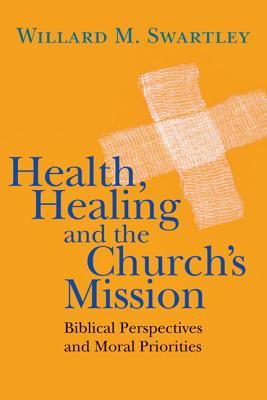 Health, Healing and the Church’s Mission: Biblical Perspectives and Moral Priorities Willard Swartley (IVP) $24.00 This is brand new and is the book I am most eager to mention today. Swartley is a Mennonite (who has taught at Fuller) who has done considerable work on all sorts of social ethics and contemporary issues. His book Slavery, Sabbath, Women and War (Herald Press) was helpful for me years ago as he rigorously developed a hermeneutical principle, studying various topics in Scripture and how our views of them might be informed by a wide-ranging, honest reading of the various sorts of texts on the topic. That is, the Bible sometimes seems to contradict itself, but in SSWW he explored the patterns, the evolution of the Bible’s views on these four topics. Actually, Swartley notes that it was during this demanding study, when he was cataloging the multi-vocal views of specific topics in the Bible, that he started thinking about healing and how it is portrayed in various ways in the Scriptures—sometimes the Bible implies that healing will always come, other times it does not. Sometimes illness is a plague, sometimes it is a gift. Hmm.
Health, Healing and the Church’s Mission: Biblical Perspectives and Moral Priorities Willard Swartley (IVP) $24.00 This is brand new and is the book I am most eager to mention today. Swartley is a Mennonite (who has taught at Fuller) who has done considerable work on all sorts of social ethics and contemporary issues. His book Slavery, Sabbath, Women and War (Herald Press) was helpful for me years ago as he rigorously developed a hermeneutical principle, studying various topics in Scripture and how our views of them might be informed by a wide-ranging, honest reading of the various sorts of texts on the topic. That is, the Bible sometimes seems to contradict itself, but in SSWW he explored the patterns, the evolution of the Bible’s views on these four topics. Actually, Swartley notes that it was during this demanding study, when he was cataloging the multi-vocal views of specific topics in the Bible, that he started thinking about healing and how it is portrayed in various ways in the Scriptures—sometimes the Bible implies that healing will always come, other times it does not. Sometimes illness is a plague, sometimes it is a gift. Hmm.